G20 Leaders’ Summit 2015 in Turkey
Akshay Mathur, Director of Research, Gateway House, attended the Think Tank (Think 20) Summit in Antalya, Turkey. He comments on the Turkish presidency and India's contribution to the G20.
 Courtesy:
Courtesy:
Akshay Mathur, Director of Research, Gateway House, attended the Think Tank (Think 20) Summit in Antalya, Turkey. He comments on the Turkish presidency and India's contribution to the G20.
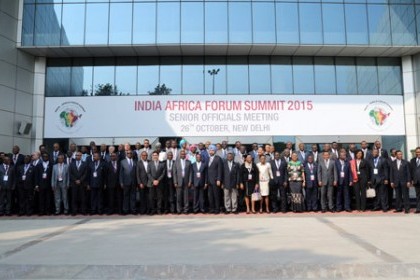 Courtesy: MEA
Courtesy: MEA
The U.S. is urging India to alter its IPR regime, and the potential impact on prices in the pharmaceuticals sector is of concern to African countries that depend on India for low-cost generic medicines. The recent India-Africa Forum Summit in New Delhi sought to address this issue, but it will be a challenge for India to balance competing pressures.
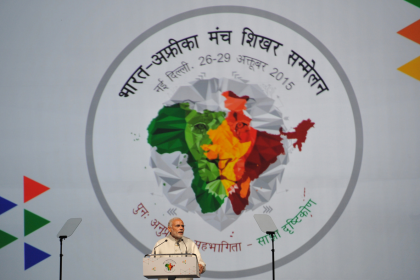 Courtesy: MEA / Flickr
Courtesy: MEA / Flickr
Changes in how India plans to approach its relationship with Africa were evident at the recent India-Africa Forum Summit, including the wider representation of African countries, and Modi’s push to forge a united front with Africa at multilateral institutions on trade and other issues. But beyond these, gaps in the India-Africa alliance remain to be addressed.
 Courtesy:
Courtesy:
Designed by Debarpan Das This infographic was exclusively created for Gateway House: Indian Council on Global Relations. You can read more exclusive content here. For interview requests with the author, or for permission to republish, please contact outreach@gatewayhouse.in. © Read more
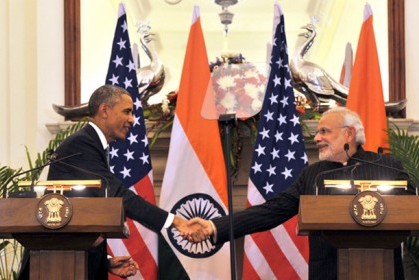 Courtesy: Wikipedia
Courtesy: Wikipedia
Modi’s second visit to the U.S. in September indicates a growing partnership in such areas as business, technology, and climate change. Though gaps too remain—for example, India is not part of the TPP and its bid for a UNSC seat is on hold—for now, it is time to consolidate bilateral meeting points, and India can start by simplifying its trade policy and tariff structure
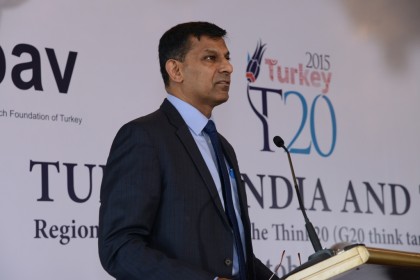 Courtesy: Gateway House
Courtesy: Gateway House
Dr. Raghuram Rajan, Governor, Reserve Bank of India, delivered the keynote address at India's first Think20 (T20) meeting organised by Gateway House with TEPAV, on the "Global Economy and Challenges for Multilateral Policies." He urged emerging markets like India to develop their own capacity to provide new ideas to the global financial system, “hold the pen” that will write a more inclusive agenda, and strengthen global multilateral institutions.
Do the TPP and the proposed India-EU trade deal extend protection of IPR, delaying generic competition for life-saving drugs and keeping their prices high? While these and other possible implications for Indian consumers and pharma companies become clearer over time, India must robustly engage with the debate on trade deals and public interest
 Courtesy: Wikipedia
Courtesy: Wikipedia
Although it is too soon to comprehensively analyse the Trans-Pacific Partnership agreement of October 5, it is worth assessing what is known. Here are the facts, the controversies, the assessments, and the implications for countries that are not part of the agreement, especially India.
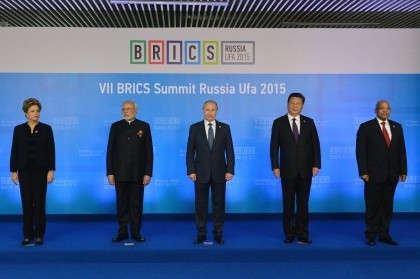 Courtesy: Wikipedia
Courtesy: Wikipedia
At a recent international seminar on BRICS Studies, in addition to the predictable themes such as building a multipolar world order and the One Belt One Road project, fresh ground was also covered, including the contours of the New Development Bank and the potential impact of the refugee crisis on BRICS countries.
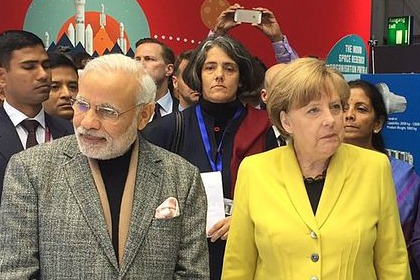 Courtesy: Wikipedia
Courtesy: Wikipedia
It has been ten months since India and Germany signed an agreement to partner in developing three smart cities. The government now seriously needs to move beyond slogans and aspirations and start addressing the more pressing issues specific to smart city development. Then only will the Modi-Merkel diplomacy be viewed as a success at home.